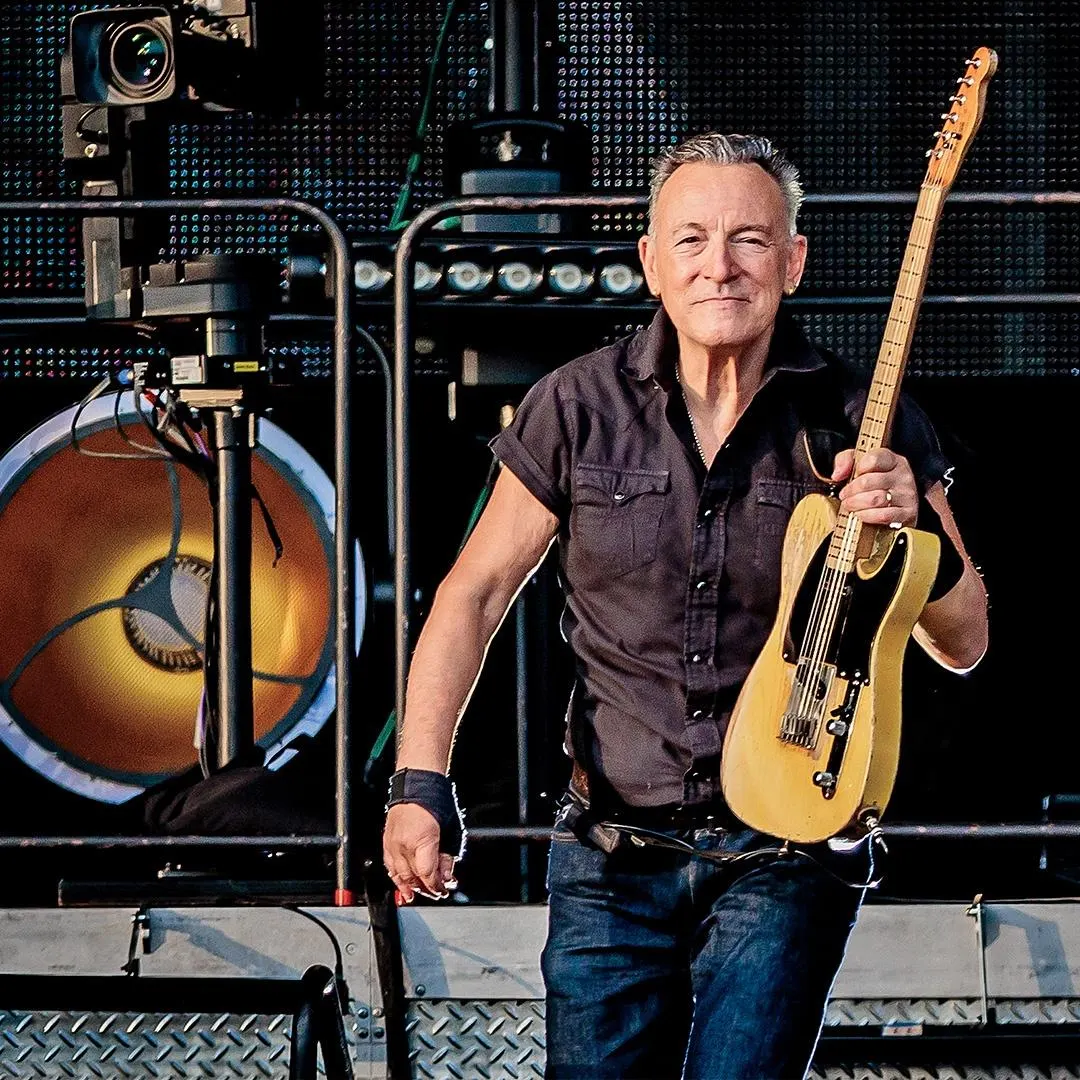
At 66, Bruce Springsteen FINALLY Confirms What Everyone Suspected
For decades, Bruce Springsteen has been “The Boss” — the working-class poet who gave America an anthem for its pain and its pride. His gravel-throated voice has carried the stories of steelworkers, dreamers, lovers, and loners, echoing from Jersey bars to sold-out stadiums around the world. But behind the sweat-drenched performances and marathon tours, rumors have followed him for years: whispers of health struggles, talk of an inevitable retirement, speculation about the toll of carrying a career this heavy for this long.
And now, at 66 years old, Springsteen has finally broken his silence. In a moment that left fans stunned, he confirmed what so many had suspected — and revealed far more than anyone expected.

 The Weight of the Rumors
The Weight of the Rumors
For years, the questions built like static around him. Could The Boss still handle four-hour concerts? Was his famously relentless schedule breaking him down? Every canceled appearance, every quiet period off stage, fueled speculation. Some feared Parkinson’s. Others whispered about depression, back injuries, or even cancer. Springsteen, famously private off stage, said nothing.
Until now.
 The Confession
The Confession
Sitting before a crowd of fans and reporters, Springsteen’s tone was stripped of his usual bravado. No fist pumps, no guitar in hand — just raw honesty.
“I’ve spent my life giving everything I have on stage. But there have been nights lately when the fight has been harder,” he admitted. “My body doesn’t recover the way it used to. And yes — I’ve thought about stopping. I’ve thought about what it would mean if I couldn’t do this anymore.”
For the first time, he admitted the toll that six decades of relentless touring had taken on him.
“People look at me and think I’m invincible. But I’m not. I’ve struggled with my health. I’ve struggled with my mind. And I’ve struggled with the thought that maybe one day I won’t be The Boss anymore.”
 Shadows Behind the Spotlight
Shadows Behind the Spotlight
Springsteen confessed that the toughest battle wasn’t always physical. He opened up about bouts of depression that left him “paralyzed” off stage. “There were times I didn’t want to get out of bed. Times I felt like I was letting everyone down. But when I walked on stage, something happened — the music pulled me back.”
It was a rare glimpse into the private wars fought by a man known for his public strength.

 The Music Keeps Him Alive
The Music Keeps Him Alive
And yet, even as he acknowledged the struggles, Springsteen made one thing clear: he is not done.
“Music has always been my lifeline. As long as I can sing, as long as I can play guitar, I’m not retiring. I’m not leaving. This is what I was put here to do.”
The declaration brought the room to its feet. Fans who had feared the worst cheered, some with tears in their eyes. The Boss might be bruised, but he wasn’t beaten.
 Why This Matters
Why This Matters
Springsteen’s confession matters not just because of his celebrity, but because of what he represents. He has always been a mirror for ordinary people: their struggles, their triumphs, their scars. By admitting his own fragility, he reminded fans that even legends carry burdens, even icons stumble.
It was a reminder that vulnerability doesn’t erase strength — it deepens it.
 The Future of The Boss
The Future of The Boss
What comes next? Springsteen didn’t make promises about endless tours. But he did promise this: new music is still on the way. “I’m writing. I’m recording. The songs keep coming, and I’ll keep giving them as long as I can,” he said.
For fans, that was enough. The Boss wasn’t walking away. He was walking forward — maybe slower, maybe scarred, but still carrying the torch.
 A Legacy of Fire
A Legacy of Fire
At 66, Bruce Springsteen has confirmed what many suspected: he is human. He hurts, he struggles, he doubts. But he also confirmed something far more important: he is unbreakable in spirit.
“The day I can’t sing anymore will come,” he admitted. “But that day isn’t today.”
And with that, the legend of The Boss grew even larger — not because of perfection, but because of the courage to admit imperfection.





